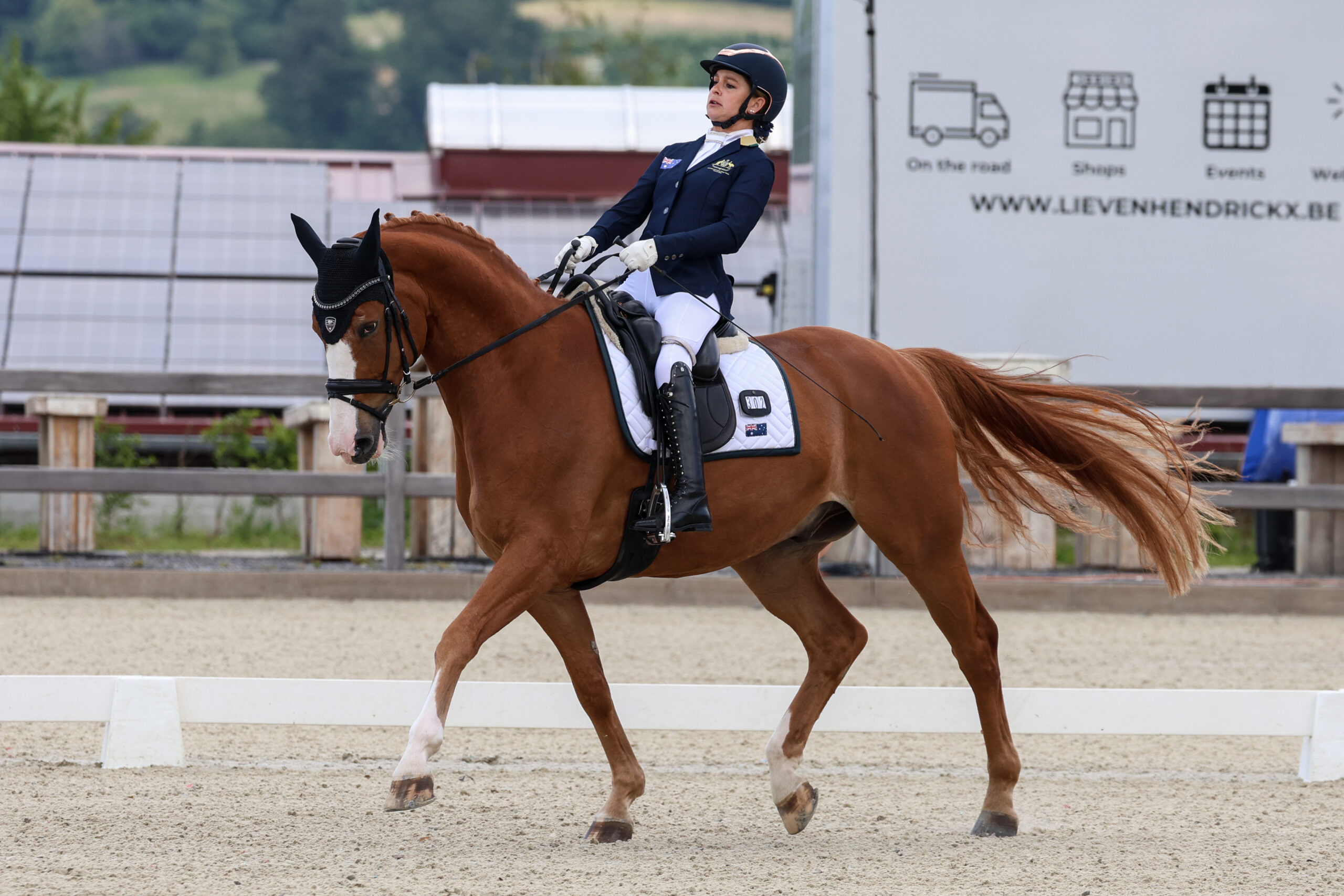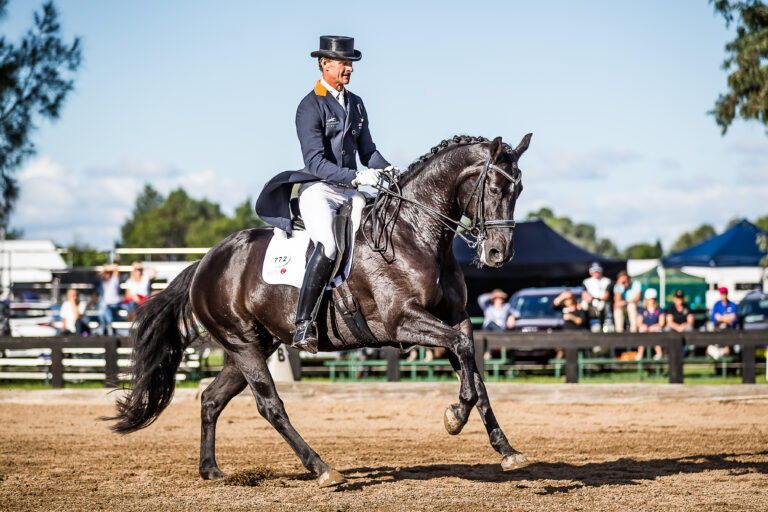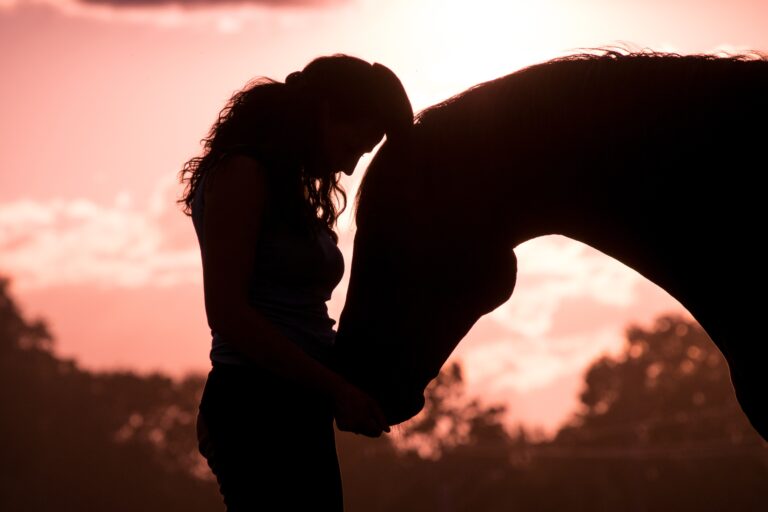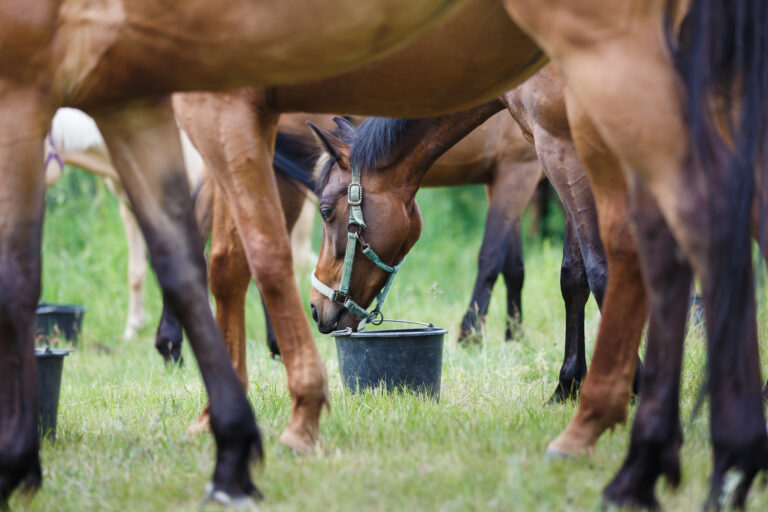By Emma Booth
Image: Emma Booth and Saimir by LL Foto.
What causes some riders to have increased anxiety prior to competing compared to others? Why do we react to competition environments the way we do? What should we consider to be the right level of nerves pre-comp? How do we change the way we feel in the lead up to riding our test, and will this ultimately affect our scores in the ring?
Everybody has different levels of apprehension before competing. Some riders are extremely uneasy, and can experience varying physiological signs of nervousness including increased heart rate, sweating, becoming short of breath, trembling or shaking, feeling nauseous or experiencing butterflies or pain in the stomach. On the other hand, there are some riders that are able to get in the saddle as if it’s any other training day at home and feel absolutely no change in mood or physical responses what so ever.
If we allow ourselves to get too worked up prior to competing, some find it hard to get these nerves under control again once in the saddle. This can have a negative impact on your performance, as your concentration is compromised and you are not fully focused on the task at hand. Whether you’re riding a dressage test, entering a jump off, or doing some campdrafting – all disciplines require your full attention, and you’re therefore going to achieve a higher standard of riding when you are confident and focused.
A small amount of nerves is fine and can perhaps give you a little bit more of an edge, but it is very important to find the right balance. I think that a few nerves can be a good thing, as long as they are not affecting your performance.
I myself am not a rider that gets overly anxious prior to competing, however I used to be. Particularly before dressage, I would get extremely nervous and the butterflies were always very evident. I have discovered that for me to stay relaxed and calm on competition days, I need to keep busy in the lead up to riding. If I sit and do nothing, I can start to get a few butterflies in the tummy. I keep busy doing things so that I don’t have long periods to sit and get worked up. I like being around the horses prior to competing as well. I like having times written down so I know what we need to do and when. If I’m around the horses I can see when things are being done and if we are ahead or behind schedule – I find knowing this eases my mind. When I am away and unaware of these things, I tend to worry about it more. This probably sounds odd and could be the opposite for some people – out of sight, out of mind kind of thing. If you are unaware that things are behind schedule, you can’t get anxious about running late.
My point is, there is no right or wrong answer, it’s just about figuring out what works for you. Everyone is different, and it’s therefore your job to be aware of what situations make you worried, and in contrast what the environment is like when you are at ease and feeling good.
Each rider needs to think about what triggers them to become nervous, and work towards putting in place a pre-competition plan that prevents circumstances that build anxiety. For example, it could be talking to people that heightens your angst, in which case, keep to yourself prior to riding and avoid people as much as possible. It’s also a good idea to let the team of support people around you know how you would like the environment to be before getting in the saddle. If you want to be left alone, it’s not a bad thing to give those close to you a heads up, so that they understand why you might be acting the way you are, and how they can behave to ultimately help you get in the right mindset for competing.
My simple but hopefully helpful tips to keep your nerves at ease are:
1. Focus on you – don’t get caught up in thinking about what others are doing or the competition you are up against. Stick to yourplan and be confident about what you are doing. There is no use in concerning yourself about others, try to just think about yourself.
2. Have fun – if you are enjoying what you are doing and having fun, you are naturally going to relax and ride better. There is no point being out there in the competition ring if you’re not enjoying yourself or performing with your horse.
3. Positive self-talk – it is so important to stay mentally positive in the lead up to a show. Thinking negatively about how you and/or your horse are going in training before a competition, will only add to your anxiety when you get to a venue to perform. Stay positive about yourself, your routine, your preparation and your goals – despite sometimes facing hiccups along the way – and mentally you will be all the better for it come competition time.
4. Trust your training – have confidence that the work you have put in during the lead up is adequate. Trust your physical abilities and trust your horse’s ability. Think about the times when you have nailed each test movement in training and let those positive moments take over your thoughts. Thinking about the fact that you can do it, is more productive than worrying about if you don’t do it in competition. Nothing positive comes from these concerns.
5. Goal setting – it is important to set goals before competing so that you are always aiming for something in particular. It is not useful to set impractical goals that are probably not immediately achievable. Set realistic, honest goals and think about these before you ride.







